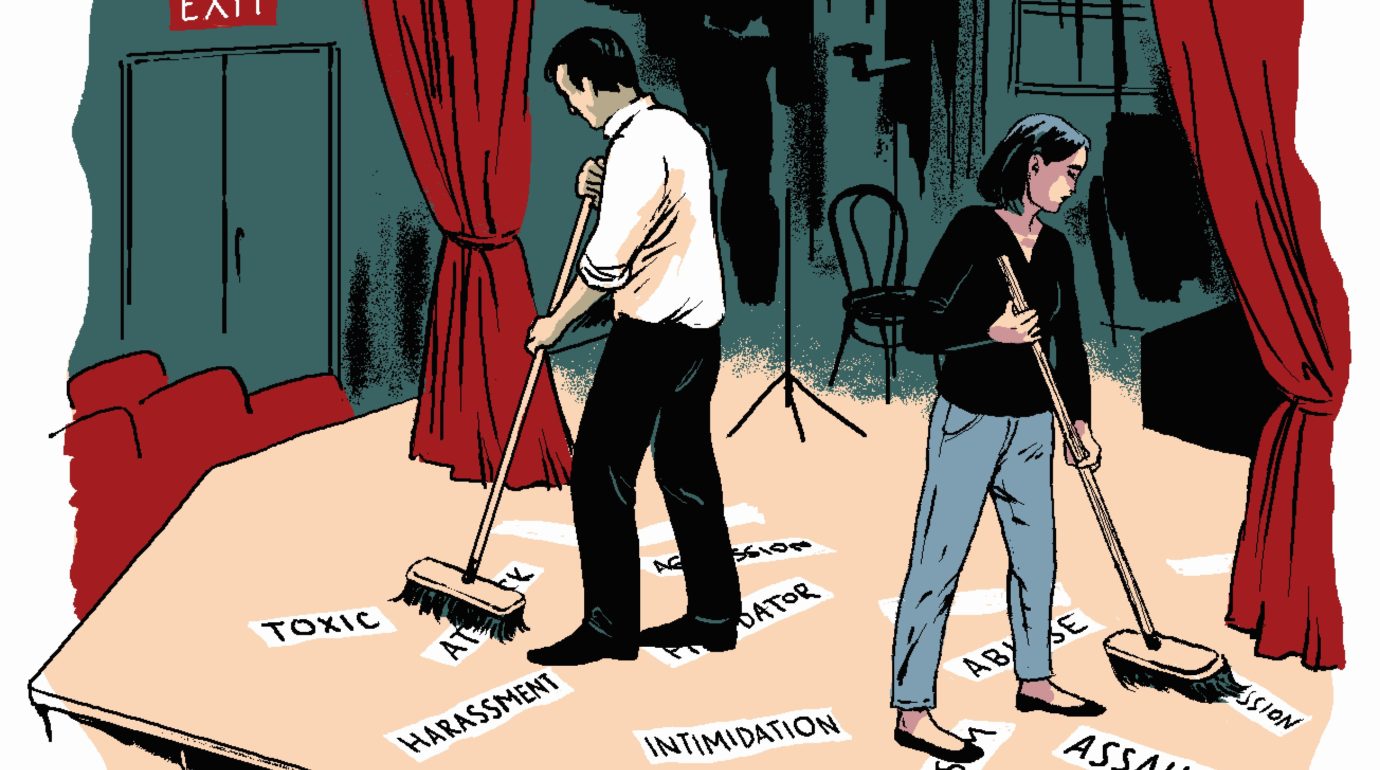Community, Leadership, Experimentation, Diversity, & Education
Pittsburgh Arts, Regional Theatre, New Work, Producing, Copyright, Labor Unions,
New Products, Coping Skills, J-O-Bs...
Theatre industry news, University & School of Drama Announcements, plus occasional course support for
Carnegie Mellon School of Drama Faculty, Staff, Students, and Alumni.
CMU School of Drama
Monday, September 10, 2018
When Damage Is Done
AMERICAN THEATRE: Since October 2017, when the #MeToo movement broke as a national story and the subsequent Time’s Up movement against sexual harassment and predation has only grown in moral force, one thing was clear: Theatre would not be spared. Since last fall a number of theatre artists have been accused of sexual harassment, and in some cases lost jobs over it, including playwright Israel Horovitz and Lee Trull, former director of new play development manager of Dallas Theater Center. Others were accused but still retained their jobs while their companies conducted investigations, such as Michael Halberstam, artistic director of Writers’ Theatre in Glencoe, Ill., and currently Thomas Schumacher, the head of Disney Theatrical Group.
Subscribe to:
Post Comments (Atom)

3 comments:
Sexual harassment/assault and psychological abuse hide in the shadows of every industry, and as the world has seen of late, especially in entertainment. The #MeToo movement has been a solid first step in illuminating these problems and finding ways to eventually stop them from occurring in the first place. I have read and heard dozens of stories from many people about being harassed/mistreated in their workplace, and to that I say, “Me too.” Creating such a visible, safe environment for conversations to take place and experiences to be voices is imperative if we want to help those who come forward, and properly deal with those who are accused. The efforts of places like Long Wharf Theatre to interview and take recommendations from former and current staff are going to make all the difference in doing this. Oppositely, places operating in the way The Alley Theatre has been should reevaluate their procedures regarding workplace harassment. It seems that they are doing less work to solve the problems openly and collaboratively than they are to cover them up or deal with them only internally.
I don’t know why so many institutions who are dealing with sexual assault/harassment allegations work so hard to cover it up and pretend like the reasons for people leaving are unrelated circumstances. Most people take issue with the abuser himself (or occasionally herself). It is he who was creating toxic environments with his unwelcome actions. There may be others involved in allowing the environment to persist until someone is courageous enough to break it, but it really isn’t until the institution as a whole publicly moves to erase the situation that their credibility is destroyed. It’s almost ironic that they are ensuring the one thing they are seeking to avoid: to be tied, as an institution, to sexual harassment. While the Alley did make some efforts to better their workplace atmosphere, they could have done more to show this behavior is intolerable by actually holding Boyd responsible. It only serves to add a grey cloud above the theater and leave questions about the actual safety of their institutional environment.
It was really gratifying to read about the changes and the process to identify the right changes that the Long Wharf undertook after firing Edelstein. It seems like they are truly intent on both identifying the problem, publicly acknowledging their mistakes and the reasons Edelstein has left, and changing things for the future of their company. The section of the article about the Alley Theatre was less encouraging. Although they are trying to implement changes, or at least seem like they are implementing changes, the simple fact of not acknowledging Boyd's behaviour is damaging to the people who have dealt/are dealing with his harassment/abuse and will hamper their process. They need to publicly acknowledge what happened if they want to grow, as we know from 12-step rehabilitation programs: the first step is admitting you have a problem. This reminds me of the article about the backlash to Olivia Munn's calling out the Predator movie for casting a sex offender. Their response seemed to be "the scene got cut, so why is it an issue?" The Alley Theatre seems to think along the similar lines that if they eliminate the problematic person there is no need to actually publicly acknowledge the problem.
Post a Comment